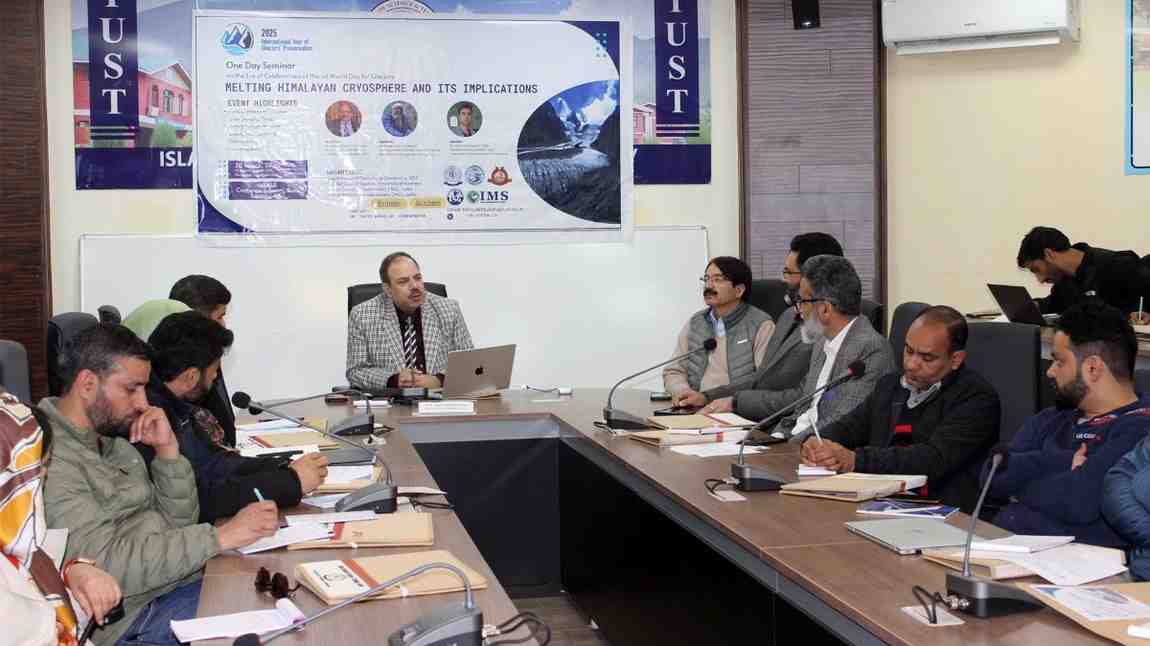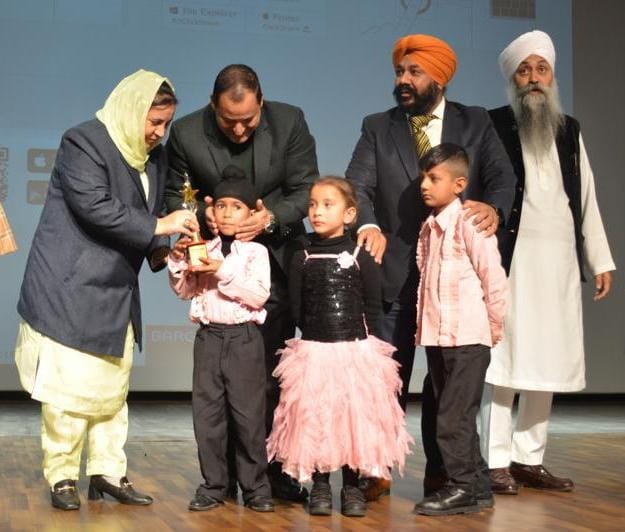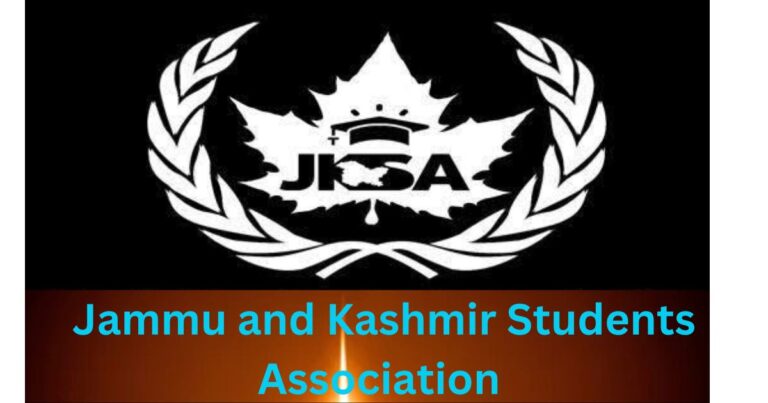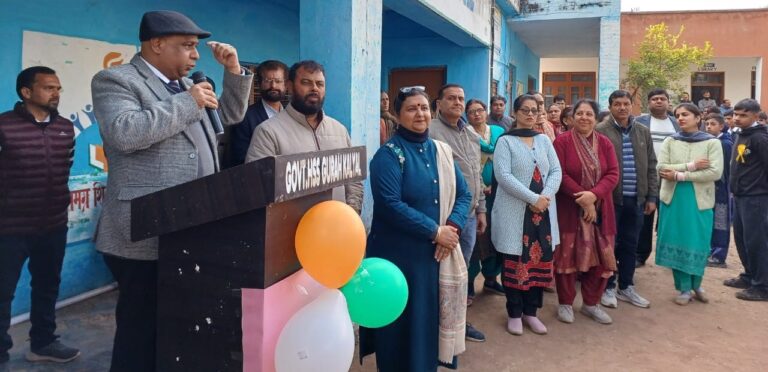IUST Awantipora Hosts Seminar on Melting Himalayan Cryosphere Before First World Day for Glaciers

Awantipora, J&K – The Islamic University of Science and Technology (IUST), Awantipora hosted a one-day seminar on “Melting Himalayan Cryosphere and its Implications” ahead of the First World Day for Glaciers. The event brought together researchers, academicians, policymakers, and environmentalists to discuss the alarming rate of glacier melt in the Himalayas and its consequences for ecosystems, water security, and regional communities.
Click Here To Follow Our WhatsApp Channel
Organizers and Participants
The seminar was organized in collaboration with:
- Centre of Excellence for Glacial Studies, University of Kashmir (UoK)
- Indian Society of Geomatics (ISG), Kashmir Chapter
- Indian Meteorological Society (IMS), Srinagar Chapter
The event saw participation from leading scientists, climate researchers, and students from various institutions. Eminent speakers shed light on the causes, current trends, and future projections of glacial retreat in the Himalayas.
Key Objectives of the Seminar
The seminar aimed to:
- Raise Awareness – Highlight the impact of climate change on the fragile Himalayan cryosphere.
- Facilitate Scientific Discourse – Provide a platform for experts to share research findings on glacial retreat and its implications.
- Discuss Policy Measures – Explore environmental and socio-economic risks, including water shortages and biodiversity loss.
- Encourage Collaboration – Strengthen partnerships between researchers, policymakers, and institutions to find sustainable solutions.
Major Topics Discussed
Experts delivered insightful presentations on various aspects of climate change and glacier dynamics, including:
- Glacial Retreat Trends – Scientific studies showing rapid ice loss in the Himalayan region.
- Water Security Concerns – How melting glaciers affect river systems, drinking water supplies, and hydropower.
- Ecosystem Disruptions – The impact of climate change on biodiversity, agriculture, and local communities.
- Disaster Risks – Increased threats of glacial lake outburst floods (GLOFs), landslides, and avalanches.
- Adaptation Strategies – Measures to mitigate the effects of glacier melt, including conservation policies and community-based solutions.
Significance of the First World Day for Glaciers
The seminar was held on the eve of the First World Day for Glaciers, a global initiative aimed at raising awareness about the importance of glaciers and the urgent need to protect them from climate change. The observance of this day underscores the role of glaciers in sustaining life and maintaining ecological balance.
Expected Outcomes and Recommendations
As a result of the seminar, participants emphasized:
- The need for enhanced monitoring of Himalayan glaciers through satellite imagery and field studies.
- Strengthening climate policies to curb greenhouse gas emissions.
- Promoting sustainable water management to counteract the effects of glacier loss.
- Increasing community engagement to ensure local populations are equipped to handle environmental changes.
Conclusion
The IUST Awantipora seminar served as a vital platform to discuss one of the most pressing environmental challenges of our time. With glaciers melting at an unprecedented rate, the need for immediate and collective action has never been more critical. Experts urged governments, institutions, and individuals to take concrete steps toward protecting the Himalayan cryosphere for future generations.
The event concluded with a call for further research, policy interventions, and community-driven solutions to safeguard the region’s water resources and biodiversity against the growing threat of climate change.
You Might Also Like :
Massive Fire in Kadipora Anantnag Guts 22 Houses, Leaves 40 Families Homeless
Terrorism and Stone-Pelting Declined in J&K Under Modi’s Zero-Tolerance Policy: Amit Shah
15-Year-Old Author Syedah Zikra Bukhari Shocks Everyone with Powerful Book on Overcoming Failure





